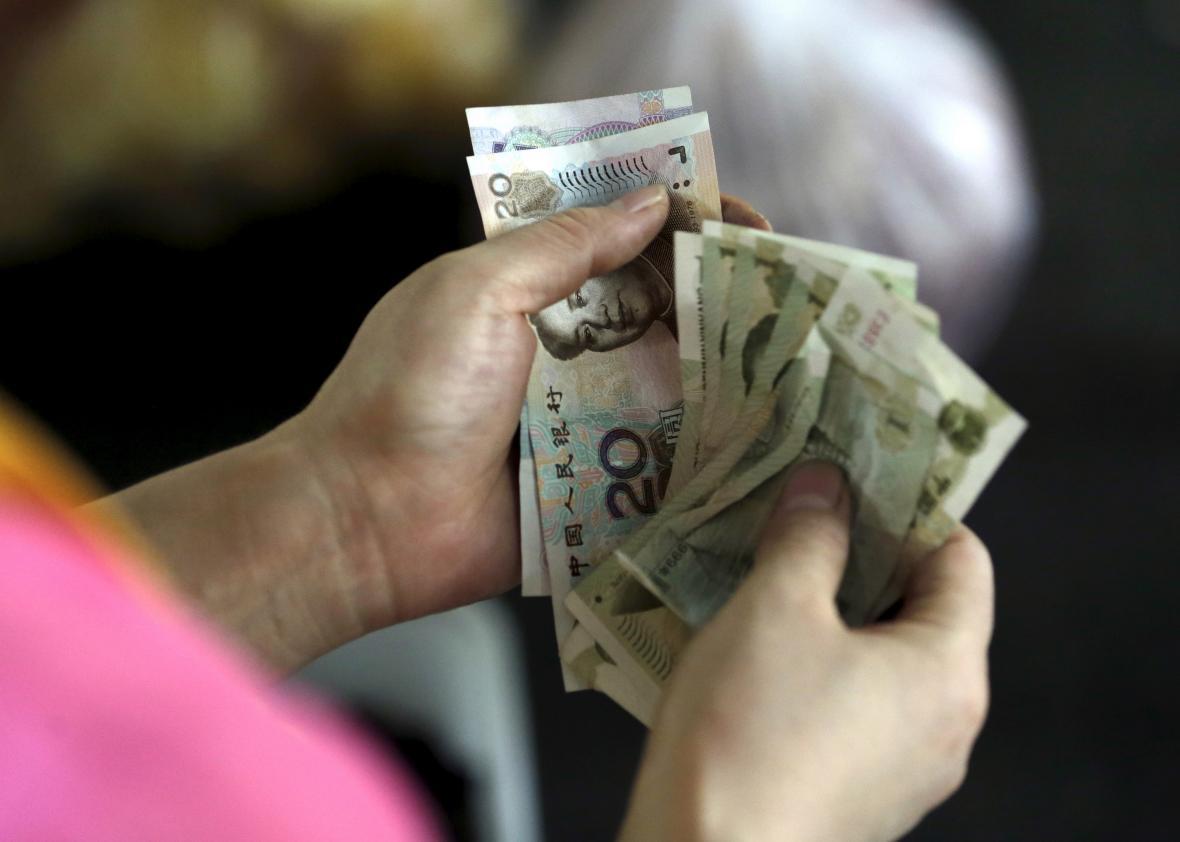When China’s currency slid a striking 4.4 percent last week, the reaction was mostly alarm; it’s since settled into bafflement. Why did the nation’s central bank, which historically has kept a tight grip on its currency exchange rate, let the yuan fall so dramatically? There were two main theories: First, that China wanted to prop up exports. Second, that it was making a play for inclusion in the International Monetary Fund’s basket of reserve currencies by exposing the yuan to more market influence. The problem was that then the yuan resumed trading in a tight range, renewing everyone’s bafflement. And in the latest update, the IMF indicated that the yuan won’t be joining the reserve currency list any time soon. If there was anything to theory No. 2, Beijing’s central bankers are feeling pretty lousy right about now.
The IMF on Wednesday extended the deadline for reviewing its basket of reserve currencies from this December to September 2016. Practically speaking, that’s a setback for China. It means at least another year will pass before the yuan might gain reserve currency status—a change that could solidify China’s role in the global economy by encouraging other countries to add the yuan to their stockpiles. Earlier this month, the IMF indicated that its decision regarding the yuan would hinge on how “freely usable” the currency was. That’s partly why the proponents of theory two thought China was letting the yuan slip last week—devaluation was conceivably one way of convincing the IMF that it was serious about letting market forces take a more active role in the currency. For a short while, it even looked like that strategy might be working. The IMF last week called China’s decision to let the market take a greater role in setting the currency exchange rate a “welcome step.”
So, to reiterate, if there was any truth to theory two, you can imagine that the People’s Bank of China isn’t too pleased. (China’s embassy in Washington didn’t respond to a request for comment from the Wall Street Journal.) The IMF news appeared to spark further instability in the yuan, which fell on Thursday despite the PBOC setting the daily reference rate higher. Then again, China had kept its currency stable for months in an apparent effort to convince the IMF that the yuan was a good candidate for reserve status, and investors were betting on that stability to continue. The abrupt devaluation and subsequent return to stability was the ultimate mixed message. “It is hard to have a high degree of conviction in anticipating the increasingly fitful reactions of the Chinese policy makers, and by extension the near-term direction of the [yuan],” Goldman Sachs analysts wrote earlier this week.
Let the bafflement continue.
